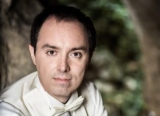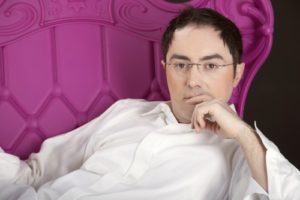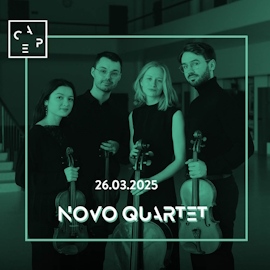How did it come that you became so interested in Rossini’s piano music?
When I was very young, I loved to improvise on Dal tuo stellato soglio from Moise by Rossini: my love for Rossini’s music started early, but only during these last years I had the opportunity to know better Péchés de Vieillesse. Maria Tipo, my piano teacher, introduced me to a couple of pieces, and I wanted to know more, so I started my research about the complete and huge opus. It was a lightning strike!
Rossini’s piano music looks different than his opera compositions. Can you point out these differences?
After Guillelme Tell, Rossini begun an intense creative period, not a silence. The Péchés period is the best to really know and understand the man Rossini: his feelings, his soul and artistic maturity. With Péchés de vieillesse, Rossini wrote music only for the joy to do this, for him and his friends and because he couldn’t stop writing. He did it without any commercial purpose and not for money: this is a very different approach than in his operas. In this period of his life, he didn’t need anything: he was rich and very famous. Perhaps he needed to create an appointment with his own inwardness and with God, to whom he dedicated the last Sin, Petite Messe Solennelle. Of course, in these pieces for piano and chamber music we can find some reminiscences of his operatic style and also some self-quotes, with a great sense of humor.
Where did these differences come from?
First of all, musical esthetics changed in Europe, and Rossini had sponged the influences of Romanticism, especially of Chopin and Liszt, although tied to the past in the form. Many important musicians came to Rossini’s house in Passy to play their music or the music of his time. Liszt himself played Rossini’s music. The experimentation in new bold harmonies and the exploration of all the technical and expressive possibilities of the piano are the most important and idiomatic differences. The piano is now Rossini’s theatre, a theatre with a wide palette of colors, in which he shows his soul, his suffering but also the joy of life and his love for Olympe, Rossini’s second wife. While he wrote operas quickly, pushed by his customers, Rossini wrote for piano without anxiety. We can find second thoughts and several corrections in his manuscripts of Péchés.
Why did he not write piano and chamber music prior to his years in Paris?
He wrote some little pieces for piano and vocal scores also before Paris, some dedications to friends or important people (some pieces have only few bars), but in general Rossini didn’t have time to write other things beside opera, he was a very busy operatic composer and nobody asked him to write chamber music; in my opinion he was also a bit lazy!
And why did he start doing that in Paris?
Paris is a new vital space in Rossini’s life. I think he had the possibility to slow down, to have time to discuss himself and to think about the changes of the musical world. In that vital space he found a new way to express his creativity, in the quiet of his beautiful villa in Passy. Then Paris was the capital of arts and music in that period.
You are completing the complete Péchés de Vieillesse with 20 unpublished works. How did you find them?
I did several researches around Europe: I have to thank Fondazione Rossini in Pesaro and especially some researchers and collectors, such as Reto Müller, Sergio Ragni, Philip Gossett who gave me some manuscripts. Then, I found interesting unpublished works at the Bruxelles Library.
Is this a difficult repertoire, compared to other composers?
Yes, it’s difficult for technique and also for interpretation problems. Most of them are virtuoso pieces, they require a transcendental piano technique (like Liszt), but there are also enigmatic pieces and sometimes it’s not easy to find out the meaning, the way to play. Péchés are also difficult to play by memory because there are often uncommon harmonic changes. Rossini loves repetitions, always with little differences, so it’s not easy for the pianist to follow the musical discourse. But it’s a very interesting repertoire to play in concert, and also for students, to learn how to manage different difficulties at the piano. And it’s also funny: I’m thinking about Les raisins in which the pianist must sing a song with a parrot-voice or Un petit train du plaisir in which the performer has to speak telling a funny story of a trip by train.
People might not be aware of the importance of those Péchés de Vieillesse. So, why should they listen to it?
I believe that if you want to well know Rossini, you have to know his Péchés: they are a very important part of his creativity and will allow everyone to complete the vision he can have about this incredible man and composer. But there is also another important motivation to listen to them: Rossini anticipates the 20th century in this repertoire which helps to better understand Satie or Milhaud, the futurism and even Stravinsky. This is music of the future, and Rossini was perfectly aware of it.
After having finished you Rossini project, what are you next plans?
Naxos will soon release a CD with me and the great Italian cellist Enrico Dindo with the complete works for cello and piano by Castelnuovo-Tedesco, with first recordings. For future projects, I’m interested to explore Italian repertoire for piano and orchestra and, and besides the great repertoire, also another love: Clementi, the father of the piano.
The Pizzicato review of the last volume of Péchés de Vieillesse is here.























